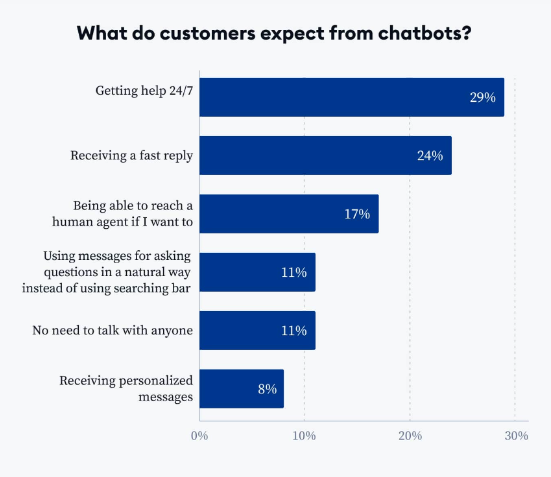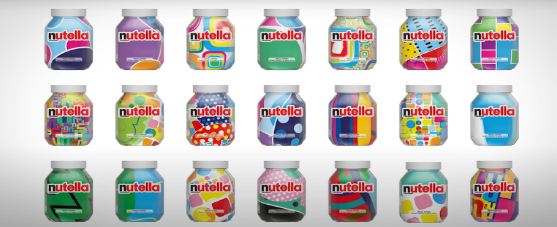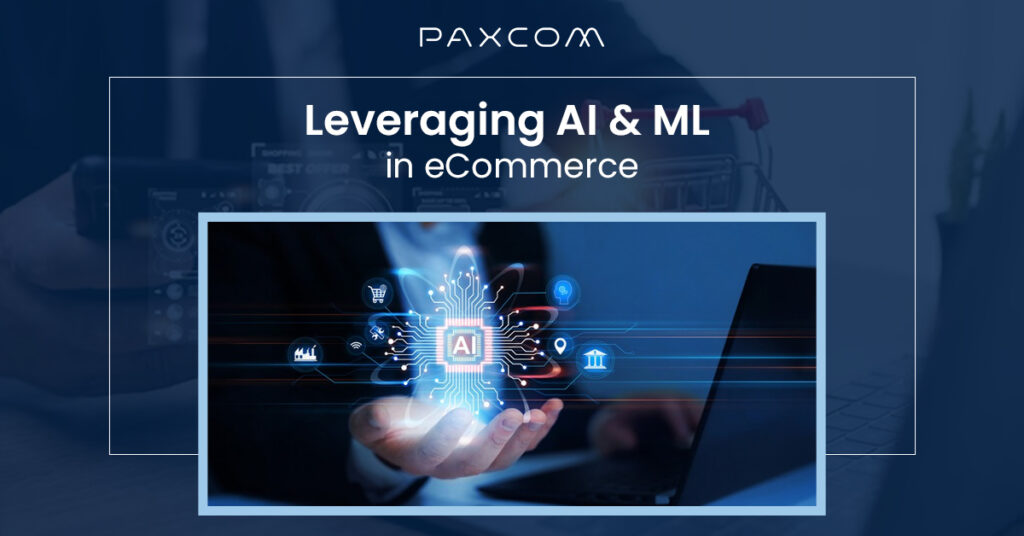Looking back just a few years, there were only a handful of dedicated shopping outlets. Gradually, malls emerged where everything could be found in one convenient spot, offering an immersive in-store shopping experience. Then came a paradigm shift with the advent of online shopping, ushering in the era of online marketplaces.
Despite the appeal of centralized shopping, consumers increasingly turned to the convenience of shopping from their homes. However, the landscape is on the brink of transformation once more. As e-commerce intensifies competitiveness, artificial intelligence (AI) and ecommerce machine learning (ML) emerge as the pivotal factors distinguishing retailers within the sector. It enhances customer experiences, streamlines operational efficiencies, and even reshapes business paradigms.
A recent McKinsey analysis estimates that by 2030, AI applications in India’s e-commerce sector alone could generate $20 billion annually, driving unprecedented efficiency. Also, the global AI software industry is anticipated to exceed $126 billion by 2025. The most recent research from McKinsey & Company demonstrated how artificial intelligence in e-commerce increases eCommerce revenue by 20%. Between 2022 and 2028, the Indian AI market is expected to grow at a CAGR of 30%. It’s evident that artificial intelligence (AI) transcends mere trendiness; it stands as the propelling force behind a thrilling new epoch in online retail, firmly cementing its presence.
Artificial intelligence (AI) and e-commerce machine learning (ML) in e-commerce will significantly impact the future of e-commerce. These technologies will aid in precisely understanding consumer preferences and forecasting consumer trends. In ecommerce machine learning, algorithms are trained to solve a problem by analyzing examples or using previous experiences.
Let’s guide you through the profound implications of Artificial intelligence in ecommerce and ecommerce machine learning for your business, emphasizing that it’s not merely a trendy buzzword but a strategic necessity that transcends mere industry conformity.
Table of Contents
Optimizing Budget for Impactful Advertising Success
The first critical step in meeting your sales targets is to have all marketing budgets accomplished. A well-planned budget can lead to high-performing campaigns and maximum ROI. Brands are spending time, money, and planning efforts on AI, with the most recent wave of ChatGPT and OpenAI cementing automation technologies as a must-have for any high-touch marketing strategy. You can use an ML-based model to collect data on previous marketing spending, channel performance, and sales figures.
Predictive Analytics
Logistics firms can anticipate problems and take preventative measures by utilizing AI. Integrating AI with SaaS enables a level of foresight that was previously unimaginable, whether improving delivery routes to avoid traffic or predicting spikes in demand during specific seasons.
Predictive targeting, for example, uses machine learning algorithms to forecast how customers will make decisions based on past data, such as website visits, behavior patterns, or making a purchase decision. Using this information, you can create segments targeting your customers with optimized campaigns and advertisements.
Sentiment Analysis
Another area where AI might assist with product recommendations is sentiment analysis. Predictive AI considers various sources, including reviews, social media activity, and customer feedback, to determine the overall sentiment towards a service or brand. For every client, predictive AI can suggest a unique course of action.
Personalization
The progress in AI and machine learning in ecommerce has paved the way for sophisticated customization methods, allowing personalized content tailored to individual users. By scrutinizing extensive data, including purchase histories and other customer interactions, businesses can precisely identify customer preferences and deliver messages that resonate most effectively.
For example, let’s take the example of the Dark Fantasy ad, where AI has been used to customize the ad creation process. People can take part by uploading a selfie, and then artificial intelligence will utilize it to place them in a scene starring Shah Rukh Khan. Isn’t appearing alongside SRK in Dark Fantasy’s AI advertising campaign amazing?Khan. Isn’t appearing alongside SRK in Dark Fantasy’s AI advertising campaign amazing?
To bring the technology into existence and provide every SRK fan with an unprecedented experience, Akool partnered with ITC Sunfeast Dark Fantasy and their media partner, IPG.

Chatbots
Chatbots have been around for a while, but when combined with AI and ML, they employ natural language to seem more intuitive, understand client concerns, and answer rapidly. The use of chatbots to improve customer care and data-driven insights for strategic decision-making is one example of how AI and ML have transformed e-commerce.
Routine concerns that can be answered without human intervention are handled humanely, allowing customer service professionals to focus on more complex problems in all languages spoken worldwide.
According to Statista, in 2016, the market for chatbot tools was more than $190 million, but it is now expected to reach $1.25 billion by 2025.
For example, with the help of artificial intelligence, Amazon’s customer support chatbot can answer frequently asked questions, provide product suggestions, and track customers’ orders.
Tidio surveyed to determine what customers expect from a chatbot, and here are their findings:
- Getting a speedy response anytime, any day of the week.
- A way to contact a human agent, particularly if they want to express their unpleasant experiences or have difficulties with a product or service.

Inventory Management
The tremendous problem of rising operational costs is a particular problem for e-commerce businesses, especially under such ongoing global economic conditions. Businesses across all industries always look for new ways to maximize efficiency while decreasing operational costs. There is great hope that the advent of AI as a game-changing technology will propel considerable improvements in operational efficiency.
Businesses can achieve sustainable growth by proactively leveraging AI capabilities rather than reducing costs.
Organizations can significantly enhance operational efficiency, save costs, and increase customer satisfaction by utilizing AI technologies for demand forecasting, restocking, optimization, real-time tracking, and quality control.
Voice Commerce
Users can purchase goods and services using voice commands. Voice commerce, which online retailers have developed to work with voice assistants like Apple’s Siri, Amazon’s Alexa, and Microsoft’s Cortana, reduces customer journey complexity and customizes each user’s shopping experience.
Natural Language Processing (NLP) voice assistants like Alexa, Siri, Google Assistant, etc. work with all languages.
Dynamic PRICING
Dynamic pricing algorithms can significantly boost profits. Retailers can keep their consumers’ confidence and loyalty by using machine learning in ecommerce for dynamic pricing. Using electronic shelf labels, stores may optimize pricing strategies and reduce waste by automatically discounting products nearing expiration.
In business, developing e-commerce methods to increase profitability is critical. Furthermore, AI is quite helpful in deciding the best pricing strategy and offers to include depending on consumer behavior, demographics, inventory levels, and market demand. AI models may dynamically alter your price to align with your profitability goals while still giving good value to customers.
Ethical AI and data privacy
Furthermore, several security concerns and the possibility of incorrect information arise with the expansion of AI’s usage.
The rapid and exponential growth of AI and the rising presence and collaboration of e-commerce enterprises using AI are unprecedented.
AI can assist today’s online merchants provide an optimal consumer experience on and off their e-commerce websites by analyzing collected business and customer data to make better business decisions and anticipate the future.
AI in different industries
Food and Beverages
For example, Starbucks can now estimate when customers will place their next order using its app and artificial intelligence technology. The company increased the functionality of its application by leveraging marketing and artificial intelligence in e-commerce.
Bottomless Brew is their AI technology that helps with personalization, retail management, and inventory management.

As part of their advertising campaign, Nutella used artificial intelligence to make 7 million different labels for their jars of chocolate spread. The limited edition jars were unique, representing the rich and varied Italian culture.
The effectiveness of artificial intelligence (AI) in ecommerce marketing was showcased in this campaign, which helped boost product differentiation and brand appeal.

Beauty and Personal Care
Consumers are increasingly interested in skincare products, indicating a shift toward more conscious choices. According to the Economic Times, the worldwide beauty and personal care e-commerce market would increase by USD 60.7 billion, 52.47%, between 2023 and 2028.
Brands are now using automation tools to combine online and offline interactions seamlessly. Today, AI-powered analytics play an essential role in understanding consumer behavior. In addition, beauty firms are embracing cutting-edge technologies like WEb3, the metaverse, and AI to stay up-to-date with the latest advancements. These tools are revolutionizing product development, marketing, and the user experience. Brands may enhance their products in real-time, meet customer wants proactively, and stay ahead of the competition by continuously analyzing and adjusting to the information obtained from these technologies.
For example, the cosmetics brand L’Oréal released an AI-powered beauty app for Microsoft to enhance users’ appearance. It analyzes over 70 points on the user’s face to produce a virtual map and enables a flawless filter application.

The expansion of artificial intelligence in the retail and e-commerce industries is directly related to the rising need for brick-and-mortar and online stores on a global scale.
Customers’ desire for technology has already made virtual stores and e-commerce a necessity and will continue to be so. AI, which is at the core of all these advancements, is ushering in a new era in retail.
AI and ML applications in marketplaces
Here are some platform-wise examples of how AI and ML are used in the e-commerce industry:
Amazon
Personalized Recommendations: Amazon uses AI to provide customized product recommendations to customers, which has been a key factor in its success. Renowned for its innovative approach, Amazon employs AI-driven Alexa to comprehend customer demand and deliver personalized product recommendations.
- Supply Chain Optimization: Amazon integrates AI in its supply chain to optimize warehouses, manage inventory, and predict consumer demand, leading to improved efficiency and customer experience. Amazon’s Supply Chain Optimization Technology (SCOT) uses deep learning and big datasets to estimate demand for over 400 million products daily and coordinate inventory shipments from millions of vendors globally.
Before being packaged, loaded into delivery trucks, and sent to consumers, AI-enabled robots with machine vision can identify, sort, and evaluate the quality of hundreds of millions of varied commodities.
From a customized Amazon homepage to a robot sorting packages to the delivery driver delivering them, artificial intelligence (AI) and machine learning in eCommerce are present at every stage of the customer journey throughout the holiday season.
Robin’s AI-enhanced vision system (a robot’s) assists Amazon employees with package sorting before loading into a truck. Robin’s journey ends at a delivery station, the final stop on the way to a customer’s doorstep. This robot can detect various objects, including stacked envelopes, boxes of different sizes, and soft bundles.
Walmart
Customer Experience: Walmart uses AI to improve the customer experience by making smarter substitutions in online grocery orders and deploying AI in its shopping app to recognize customer preferences and enhance decision-making for product availability.
Walmart added generative AI-powered search to iOS, Android, and its website. The new feature aims to answer customer queries and provide individualized solutions, thus providing interactive and conversational experiences.
Supply Chain and Inventory Management: AI and ML-based predictions help Walmart balance its network, place inventory in the right location, and anticipate demand cycles, enhancing its daily supply chain workflows.
Myntra
AI-Powered Fashion Platform: Myntra leverages AI and ML to provide personalized recommendations, track inventory levels, and predict customer behavior, enhancing the user experience and improving inventory management.
- Myntra improves search accuracy to refine search results with Generative Adversarial Networks (GANs), a machine learning model.
- Myntra’s algorithm-driven Moda Rapido operates solely through automation. Myntra’s algorithms evaluate customer information, top-selling products, and social media trends to create unique design combinations using AI models.
Nykaa
Nykaa employs AI to deliver personalized recommendations to customers, leveraging their purchase history, browsing patterns, and social media engagement analysis. Additionally, Nykaa uses AI for chatbots, inventory management, predicting customer behavior, and fraud detection. Also, customers can view the virtual results of various cosmetic items on their faces with Nykaa’s virtual try-on tool. Using artificial intelligence in e-commerce, this instrument can virtually apply the product by tracking the user’s facial features.
Flipkart
AI-Powered Fashion Platform: Like Walmart-owned Myntra, Flipkart makes use of AI and ML to predict customer behavior, project demand for SKUs, evaluate products, estimate returns and ratings, track inventory levels, potential listings, track inventory levels, and provide personalized recommendations.
Conclusion
AI is anticipated to contribute $15.7 trillion to the global economy by 2030, more than China and India’s present production combined.
2024 presents excellent potential for the e-commerce sector as advances in AI technology continue to reshape the economic environment. Businesses must adapt to these changing trends to remain competitive and provide exceptional customer shopping experiences.
Given that almost every business today uses AI, it is critical to consider how you may differentiate yourself from other businesses that use AI to fulfill their goals and expand their customer base.
Connect with us for more information at info@paxcom.net














